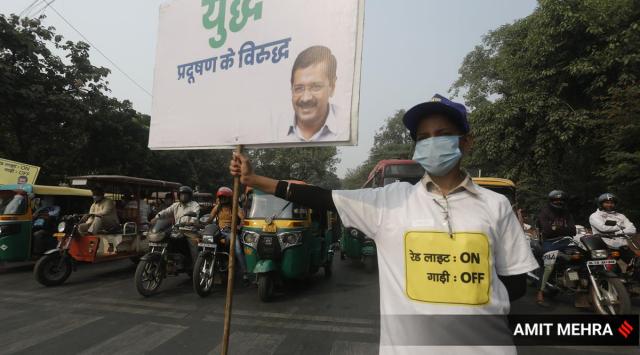Delhi High Court upholds order making ‘resident of Delhi’ mandatory condition for enrolment of candidates as Civil Defence volunteers
The court observed that it was nobody’s case that a resident of some other State cannot be enrolled as a civil defence volunteer and a person from another state residing in the city holding any of the documents required can "certainly become a civil defence volunteer in Delhi".
 The court observed that civil defence volunteers are the “first responders in case of disaster situations”. (Express file photo by Amit Mehra)
The court observed that civil defence volunteers are the “first responders in case of disaster situations”. (Express file photo by Amit Mehra) The Delhi High Court Monday upheld an order passed by Secretary (Revenue) and Divisional Commissioner (Revenue), making “resident of Delhi” a mandatory condition for the enrolment of candidates as Civil Defence volunteers.
A division bench of Chief Justice Satish Chandra Sharma and Justice Tushar Rao Gedela dismissed a plea moved by an advocate challenging the constitutional validity of a March 18, 2015, order passed by the Secretary (Revenue) and Divisional Commissioner (Revenue). The order had made “resident of Delhi” a necessary condition to become eligible for becoming a Civil Defence volunteer.
The petitioner had argued that the conditions of being a resident of Delhi do not find a place under the Civil Defence Act, 1968, Civil Defence Rules, 1968, and the Civil Defence Regulations, 1968, and any person can be a Civil Defence volunteer in Delhi. The petitioner also argued that the divisional commissioner does not enjoy any power to issue such a circular as the commissioner is not the competent authority under the Civil Defence Regulations, 1968, and by confining the recruitment process only to the residents of Delhi, the respondents are violating the fundamental rights guaranteed to the citizens of the country.
The bench in its order observed that the provisions of the Civil Defence Regulations, 1968, “specifically empowers the competent authority to take appropriate steps as deemed fit and reasonably necessary for preventing the contravention of, or securing the observance of the Regulations as prescribed or any order issued thereunder”.
“Therefore, in the considered opinion of this Court, the competent authority was justified in issuing the impugned order dated 18.03.2015. This Court is of the opinion that while enrolling a person as a civil defence volunteer, the authorities are certainly competent to issue necessary directions in respect of the place of residence of a candidate. A person who is residing in South India does not know the geography of Delhi and if recruited as civil defence volunteer, and in case of emergency he will get lost in Delhi instead of reaching to the place where emergency has occurred,” the HC said.
Observing that civil defence volunteers are the “first responders in case of disaster situations”, the court noted that the order under the eligibility criteria inserted a condition that a “person for enrolling himself as civil defence volunteer should be a citizen of India or a subject of Bhutan or of Nepal and should be a resident of Delhi, having any one of the following documents” such as voter id card, Aadhaar card, Passport/driving license among others.
The court observed that it was nobody’s case that a resident of some other State cannot be enrolled as a civil defence volunteer and a person from another state residing in the city holding any of the documents required can “certainly become a civil defence volunteer in Delhi”.
“The order dated 18.03.2015 also does not provide for producing a domicile certificate for treating a person to be a resident of Delhi. The order dated 18.03.2015 can, therefore, never be said to be violative of Articles 14,16 and 21 of the Constitution of India as argued before this Court,” the HC held.
The court further said “authorities were justified by including a condition in respect of residence” and “by no stretch of the imagination”, it can be held that the condition in regard to the place of residence is violative of Articles 14, 16 and 21 of the Constitution of India.
Dismissing the plea, the HC said it “does not find any reason to interfere” with the order of the Divisional Commissioner and “no case for interference” with the same was made out.







